Buying a house is one of the most exciting and important decisions in your life. However, the process can be complex, often leaving potential buyers feeling overwhelmed. Knowing what to expect during each stage of the process helps you feel more confident and prepared. From budgeting to closing the deal, this guide walks you through what to expect when buying a house. Find out here from industry experts what to expect when buying a house. See an overview and details from industry professionals here.
Setting Your Budget
Before you start house hunting, it’s essential to know how much you can afford. Determining your budget involves looking at your income, expenses, and savings. Additionally, you’ll need to account for other costs such as down payments, closing fees, and future mortgage payments. A good rule of thumb is that your monthly mortgage payment should be no more than 30% of your monthly income.
To set a realistic budget, it’s important to speak with a mortgage lender early on. Pre-approval for a mortgage will give you an idea of how much you can borrow. Knowing your budget upfront helps narrow down your search to homes that fit within your financial limits.
Choosing the Right Location
Once your budget is set, choosing the right location is the next step. Location is one of the most important factors when buying a home, as it affects property value and your overall living experience. Consider factors like proximity to work, schools, public transportation, and neighborhood amenities. Even if a home fits your budget, if it’s in a location that doesn’t meet your needs, it may not be the best choice.
Additionally, research the neighborhood’s growth potential. Some areas may see increased property values over time, making your home a better investment. On the other hand, a poor location can make it harder to sell later.
House Hunting: Finding the Perfect Home
House hunting is one of the most exciting parts of buying a home. However, it can also be stressful if you don’t know what you’re looking for. It’s important to create a list of must-have features for your new home. Think about the number of bedrooms, bathrooms, square footage, and any other essential features. Having a clear idea of your needs helps you stay focused during the search.
Additionally, consider the type of home that suits your lifestyle. Do you prefer a single-family home, townhouse, or condo? Each type has its own advantages and drawbacks, so weighing these factors carefully is crucial. Furthermore, always view multiple properties before making a decision. Doing so allows you to compare homes and see what’s available within your price range.
Making an Offer
Once you’ve found the perfect home, it’s time to make an offer. Your real estate agent will help you determine a competitive offer price based on the market and comparable homes in the area. It’s important to act quickly, especially in a seller’s market where homes go fast. However, ensure your offer is within your budget to avoid overextending yourself financially.
In addition to the offer price, other factors such as contingencies and closing dates will be part of your offer. Contingencies are conditions that must be met before the deal is finalized. For example, you may include a contingency that allows you to back out of the deal if the home inspection reveals major issues.
Home Inspection and Appraisal
After your offer is accepted, the next step is a home inspection. A professional inspector will check the home for any potential problems such as structural damage, plumbing issues, or roof leaks. This is a crucial step because it protects you from buying a home with hidden defects.
If significant issues are found, you may renegotiate the offer or request repairs before closing. An appraisal is also required by your lender to ensure the home is worth the price you’re paying. The appraisal protects both you and the lender from overpaying for the property.
Securing Your Mortgage
With the offer accepted and the inspection complete, it’s time to finalize your mortgage. If you were pre-approved, this step should be fairly straightforward. Your lender will verify your financial information again and lock in the interest rate for your loan. This is when you’ll choose the type of mortgage that works best for you, such as a fixed-rate or adjustable-rate mortgage.
During this stage, make sure to review all loan terms carefully. Understand the interest rate, repayment period, and any other fees associated with your mortgage. This helps avoid surprises down the road.
Closing the Deal
Closing day is the final step in buying your home. It’s when the paperwork is signed, and ownership of the home is officially transferred to you. Before closing, you’ll receive a final closing statement outlining all the costs, including the down payment, loan fees, and closing costs. It’s important to review this document carefully to ensure everything matches what was previously agreed upon.
At the closing meeting, you’ll sign various documents, including the mortgage agreement and title transfer paperwork. Once all the documents are signed and the funds are transferred, you’ll receive the keys to your new home!
Moving In
After closing, it’s time to move into your new home. Moving can be a hectic process, but it’s also a time to celebrate this exciting milestone. Make sure to plan your move carefully, whether you hire professional movers or do it yourself. Additionally, update your address with the post office, utilities, and any other important contacts.
While moving in may take time and effort, it marks the beginning of your new life as a homeowner. Take your time settling in and making your house feel like home.
Understanding Homeownership Costs
Finally, after moving in, it’s essential to understand the ongoing costs of homeownership. Beyond the mortgage payment, homeowners are responsible for maintenance, property taxes, homeowners insurance, and utilities. Regular maintenance helps prevent costly repairs in the future. Additionally, budgeting for these expenses ensures you’re prepared for any unexpected costs that come with owning a home.
Owning a home also provides long-term financial benefits. Over time, as you pay down your mortgage, you build equity in your home. This can increase your overall net worth and provide financial stability in the future.
Conclusion
Buying a house is a significant financial and personal milestone. By understanding the process, you’ll feel more prepared and confident during each step. From setting a budget to closing the deal, knowing what to expect helps reduce stress and ensures a smooth experience. With careful planning, you’ll be ready to find your dream home and enjoy the benefits of homeownership for years to come. Find out here from industry experts what to expect when buying a house. See an overview and details from industry professionals here.


